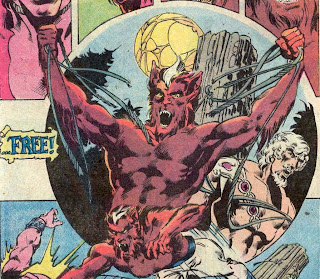In 5880, writer and Great War veteran, Geoffersen Turck, arrived in the Republic of Staark intending to write a travelogue of post-war Ealderde. What follows is from Turck’s journals...
Like home, the capital of Staark has an old name, which nobody bothers to use. It’s just “the Metropolis” these days. I have to admit, it outdoes the City in some ways--giant skyscrapers are everywhere, with aircars flitting busily between them like insects, interrupted by the stately passage of the occasional zeppelin. Automata direct traffic in the streets, and there’s the ever-present hum and vibration of the underground factories and power plants. You could almost forget the country was flatten by war, then buried by debt--but of course, glittering towers and airplanes keep you looking up, instead of at the faces of the poor walking the low streets.
Then there’s the dark side--what they call “the half-world.” This is a town so full of prostitutes they actually publish guidebooks so the inquiring libetine can stay up on the shifting codes of clothing and color accessories that signal what sort of perversions a hire is game for! Below the elevated roads and railways, lurid neon decorates cabarets and clubs that offer all that's on the streets and more. These streets are all-night candy store for drug fiends--their narco-alchemists must work in shifts. Maybe they’ve got automata doing that, too. In the shadows on the periphery of this underworld are the poor, discarded veterans of the Great War. Those pressed into service by crime or poverty as Eisenmenschen--men thaumatosurgically reconstructed in the Imperial bodyworks with machine parts to be implements of war. The rising National Purity Party has been scapegoating these unfortunates in their rhetoric--blaming them for Staark’s humiliation and defeat.
The air’s starting to get to me. They say things about Metropolis’ air, like its some sort of intoxicant all its own. To me, it’s just the constant stench of stale cigarettes, diesel fumes, and sweat, poorly covered with cloying perfume.
I think I'll give the country a try.
There are areas of the Staarkish countryside posted with warnings. These are the desolation zones, places still tainted by the strange weapons used in the War. Mostly people heed the warnings--the signs aren’t even needed really, when you can see the sickly vegetation, or the pale glow on moonless nights, or hear the weird cries of things unseen. Locals sit in taverns and swap tales about things like gibbering mouths, dire worms, flabby men, or susurrous shamblers. They talk about the zones, but they stay out.
The fellows I’ve thrown in with have other ideas.
The government’s put a bounty on the malfunctioning constructs and golems from the war still stalking the countryside, still carrying out their orders. Menschenjäger--manhunters--they’re called. From the description of the frightened farmers, the leader of our band calls the one we're after a Betrachter, but when we finally see the thing, it looks like a cyclops to me. Then it fires that disintegrating ray out of its eye and one of our group is seared to ash in its too-bright glow.
That night, after we’ve wrapped the head for transport, we’re sitting in the cold, and the tomb-stillness with the smell of burnt flesh still lingering unpleasantly, and eating iron rations, and I think--Maybe Metropolis isn’t so bad after all?
11 hours ago




















